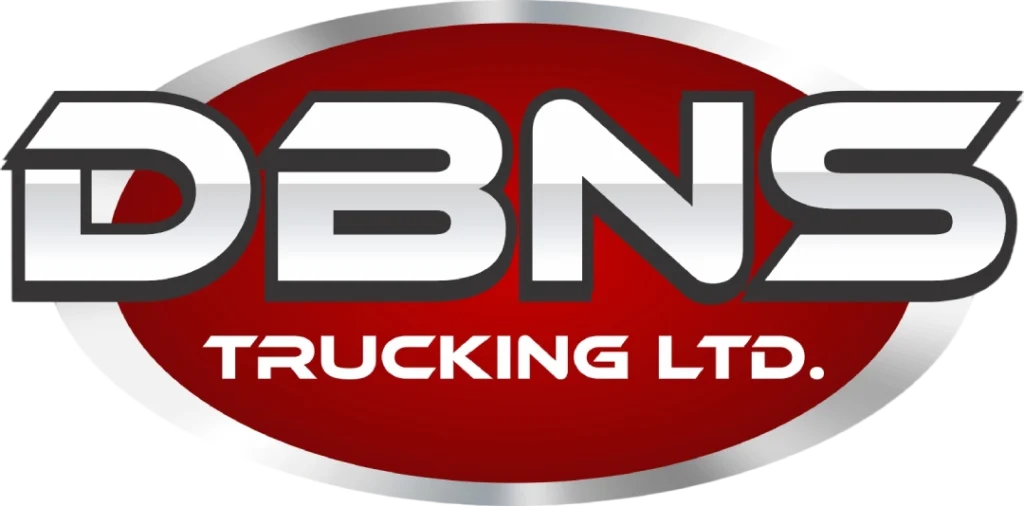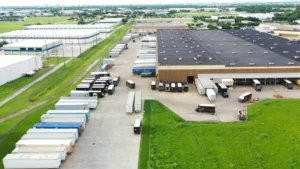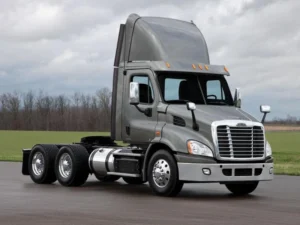Day cab trucking plays a vital role in short-haul freight transportation, offering a cost-effective and practical solution for delivering goods over relatively short distances. However, to ensure optimal performance and profitability, it’s essential to focus on maximizing efficiency. This article explores various ways to improve efficiency in day cab trucking and offers insights into the ultimate solution for short-haul freight transportation.
Understanding Day Cab Trucking
Day cab trucks are designed without sleeper compartments, making them lighter and more maneuverable than traditional long-haul trucks. They are ideal for short-haul routes that allow drivers to return home at the end of the day. While these trucks are efficient by design, there are several ways to further optimize their performance.
Tips to Improve Efficiency in Day Cab Trucking
- Route Optimization
- Why it matters: Short-haul routes often involve multiple stops and congested urban areas. Inefficient routing can lead to increased fuel consumption and delayed deliveries.
- How to optimize: Use GPS technology and route optimization software to plan the most efficient paths. Consider factors like traffic patterns, road conditions, and delivery schedules.
- Regular Maintenance
- Why it matters: Well-maintained trucks are less likely to experience breakdowns, which can disrupt operations and increase costs.
- How to maintain: Schedule regular inspections and maintenance for critical components like tires, brakes, and engines. Keep a detailed maintenance log to track repairs and replacements.
- Driver Training
- Why it matters: Skilled drivers can operate trucks more efficiently, reducing fuel consumption and minimizing wear and tear.
- How to train: Provide ongoing training on fuel-efficient driving techniques, such as avoiding idling, maintaining steady speeds, and using cruise control when appropriate.
- Load Management
- Why it matters: Improperly loaded trucks can affect fuel efficiency and increase the risk of accidents.
- How to manage: Ensure that loads are evenly distributed and securely fastened. Use load optimization tools to maximize cargo space without exceeding weight limits.
- Fuel Efficiency Practices
- Why it matters: Fuel is one of the largest expenses in trucking operations.
- How to improve: Implement fuel-saving practices such as maintaining proper tire pressure, using aerodynamic devices, and reducing unnecessary idling.
- Leveraging Technology
- Why it matters: Advanced technologies can streamline operations and provide real-time insights into performance metrics.
- How to leverage: Invest in telematics systems to monitor fuel usage, track vehicle location, and analyze driver behavior. Use fleet management software to coordinate schedules and manage resources effectively.
- Effective Communication
- Why it matters: Clear communication between drivers, dispatchers, and customers can prevent misunderstandings and improve efficiency.
- How to communicate: Use mobile apps and communication tools to provide real-time updates on delivery status and route changes.
- Sustainability Initiatives
- Why it matters: Reducing environmental impact can enhance your company’s reputation and lower operational costs.
- How to implement: Transition to fuel-efficient or electric day cab trucks, and encourage eco-friendly practices like recycling and reducing waste.
- Time Management
- Why it matters: Efficient time management ensures that deliveries are made on schedule and reduces idle time.
- How to manage: Plan routes and schedules to minimize downtime. Encourage drivers to adhere to their schedules while maintaining safety.
The Ultimate Solution for Short-Haul Freight Transportation
While implementing the above strategies can significantly improve efficiency, the ultimate solution lies in integrating these practices into a cohesive system. A well-coordinated approach that combines advanced technology, skilled drivers, and efficient processes can transform day cab trucking operations.
Key Components of the Ultimate Solution
- Integrated Fleet Management Systems
- Use software that combines route optimization, fuel tracking, and vehicle maintenance management in a single platform.
- Adoption of Electric Day Cabs
- Transitioning to electric day cab trucks can reduce fuel costs and emissions, aligning with sustainability goals.
- Real-Time Data Analysis
- Utilize telematics and IoT devices to gather data on vehicle performance, driver behavior, and delivery timelines. Analyze this data to identify areas for improvement.
- Collaboration with Third-Party Providers
- Partnering with logistics companies and freight brokers can help optimize load planning and reduce empty miles.
- Investment in Driver Welfare
- Provide incentives for efficient driving, invest in ergonomic truck designs, and ensure compliance with labor laws to enhance driver satisfaction and retention.
Additional Topics to Consider
- Safety Measures
Safety should be a top priority in day cab trucking. Regular training sessions, safety audits, and adherence to regulations can minimize accidents and ensure smooth operations.
- Cost Management
Effective cost management involves analyzing operational expenses and identifying areas for savings. Consider bulk fuel purchases, negotiating with suppliers, and using energy-efficient technologies.
- Adapting to Market Trends
Stay updated on market trends and customer expectations. Flexibility in adapting to changes, such as increased demand for same-day deliveries, can provide a competitive edge.
- Importance of Driver Feedback
Encourage drivers to share feedback on routes, schedules, and vehicle performance. Their insights can help identify operational challenges and potential improvements.
- Building Customer Trust
Reliability and transparency are essential for building long-term relationships with customers. Provide accurate delivery estimates, maintain open communication, and address concerns promptly.
Conclusion
Maximizing efficiency in day cab trucking is crucial for maintaining profitability and ensuring timely deliveries in short-haul freight transportation. By focusing on route optimization, regular maintenance, driver training, and leveraging technology, trucking companies can enhance their operations and meet customer expectations. The ultimate solution lies in integrating these practices into a comprehensive system that prioritizes sustainability, safety, and efficiency.
FAQs
1. What is day cab trucking?
Day cab trucking involves the use of trucks without sleeper compartments, designed for short-haul routes that allow drivers to return home daily.
2. How can I improve fuel efficiency in day cab trucking?
Maintain proper tire pressure, use aerodynamic devices, reduce idling, and train drivers on fuel-efficient driving techniques.
3. What are the benefits of using electric day cab trucks?
Electric day cab trucks reduce fuel costs, lower emissions, and align with sustainability goals.
4. Why is route optimization important in day cab trucking?
Route optimization minimizes fuel consumption, reduces delivery times, and enhances overall efficiency.
5. How can technology improve day cab trucking operations?
Technology like telematics systems and fleet management software provides real-time insights, streamlines operations, and enhances decision-making.
By implementing these strategies and solutions, day cab trucking can become more efficient, sustainable, and reliable, ensuring success in the competitive short-haul freight transportation industry.




